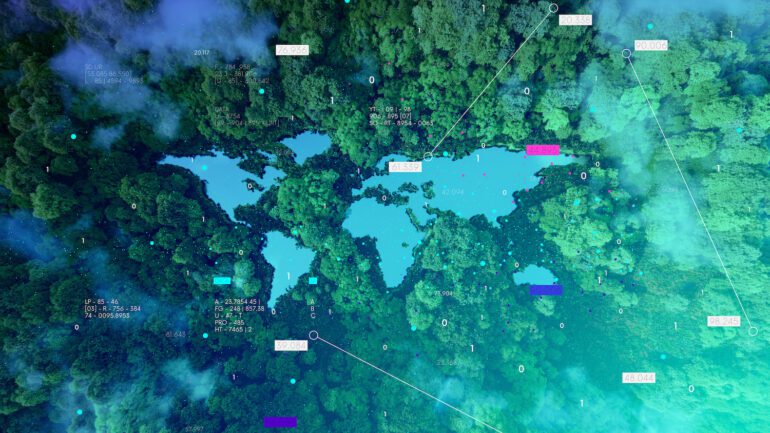TL;DR:
- AI-driven big data analytics is pivotal in tackling climate change on a global scale.
- Satellite imagery, weather data, and ecological surveys empower AI algorithms to uncover vital environmental insights.
- AI aids in climate mitigation by simulating scenarios and predicting outcomes, informing policymakers.
- Collaboration, international cooperation, and policy integration are essential for effective climate action.
- AI enhances energy efficiency, making the transition to sustainable power sources cost-effective.
- Presight’s partnerships with NEC and DeepTech Engineering offer advanced AI solutions for disaster management.
Main AI News:
In today’s fast-paced world, the urgency of addressing climate change has never been more apparent. As each day passes, the impact of climate change reverberates across communities, ecosystems, and economies worldwide. However, the fight against climate change isn’t merely a local or national concern; it’s a global imperative that demands innovative solutions.
In our quest for effective solutions, AI-enabled big data analytics emerges as a powerful ally. Not only does it support sustainability initiatives, but it also unlocks invaluable insights and groundbreaking solutions to the most significant climate challenges. By delving deep into our environment and climate, AI analytics becomes an absolute necessity in our collective efforts to secure a sustainable future.
Unearthing Environmental Insights
The foundation of addressing climate change lies in our capacity to amass and decipher vast environmental data. Big data and generative AI provide us with a formidable tool to observe, analyze, and respond to the ever-evolving dynamics of our planet.
“Satellite imagery, weather data, oceanography, and ecological surveys all contribute to massive datasets that AI algorithms can process and interpret,” says Thomas Pramotedham, CEO of Presight. With these technologies, we can uncover environmental insights that were once beyond our reach. This knowledge empowers us to make accurate predictions regarding the consequences of our actions or inaction.
Consider the alarming deforestation rate in the Amazon rainforest. Satellite image analysis performed by AI systems can detect changes in tree cover, track illegal logging operations, and provide real-time information to conservation agencies. These insights enable timely intervention, safeguarding one of Earth’s most vital carbon sinks.
Moreover, big data analytics assist in comprehending ecosystems at risk from climate change, including in-depth analysis of coastal and oceanic environments. This knowledge contributes to conservation and efforts to preserve biodiversity. Consequently, big data and generative AI empower us with a proactive, data-driven approach to environmental preservation.
The Role of AI in Climate Mitigation
Climate mitigation, the reduction of greenhouse gas emissions, stands as a paramount goal in our collective fight against climate change. AI will undoubtedly be a critical ally in this endeavor. Machine learning algorithms simulate various climate scenarios, predicting potential outcomes. AI models forecast changes in weather patterns, sea levels, and global temperatures, creating predictive models that guide climate action strategies.
Presight collaborates with leading companies in this space, NEC and UAE-based DeepTech Engineering. Together, they provide advanced AI solutions for flood modeling, earthquake monitoring, and early warning systems. These technologies empower governments to prepare for natural disasters and take critical early measures to protect lives and mitigate losses.
AI also plays a pivotal role in addressing the root causes of climate change by optimizing energy usage and distribution. It predicts energy demand, manages distribution and anticipates surplus energy periods for future use. When knowledge is shared and leveraged, AI ensures efficient utilization of clean energy, making the transition to sustainable power sources cost-effective and environmentally responsible.
Global Collaboration and Policy Integration
Climate change knows no geographical or political boundaries, necessitating international cooperation and policy integration for effective solutions. Events like COP28 in Dubai exemplify platforms for change, bringing together the world’s highest-ranking body on climate issues and one of the largest international meetings globally.
Open data initiatives and collaborative research will standardize AI and big data practices, empowering nations to work together towards common goals. Whether it’s reducing emissions, protecting biodiversity, or addressing climate-induced migration, global collaboration is key.
Governments and international bodies must develop comprehensive policies that harness AI and big data for climate action, prioritizing transparency, accountability, and equitable access to these technologies’ benefits. By integrating AI and big data into global climate policy, we create a unified approach to tackle environmental challenges threatening the very foundation of our world.
The utilization of big data and generative AI is not merely valuable; it is a global imperative in our battle against climate change. Our ability to address climate change and secure a sustainable future depends on embracing the transformative power of big data analytics powered by generative AI. It’s not just a choice; it’s an obligation to future generations and the preservation of our planet.
Conclusion:
The integration of AI and big data in addressing climate change signifies a significant market opportunity. Businesses and industries that leverage these technologies for sustainability initiatives, environmental insights, and climate mitigation strategies will be at the forefront of a global effort to combat climate change. Moreover, collaboration and policy integration are essential, creating a market niche for companies that can facilitate international cooperation and data standardization. Embracing these technologies is not just a choice but a strategic imperative for future-focused organizations.

